Hugh Asher has always loved being outdoors — from rambling up hills, flying down them on a mountain bike, or even bobbing along a river in a canoe.
It wasn’t until during lockdown that he discovered the benefits of slowing down in nature and engaging his senses.
Hugh was so taken with it that he trained as a forest bathing guide and a nature and forest therapist.
Now he uses nature connection and mindfulness to help people and ran a 12-week pilot programme in HMP Inverness for inmates in the drug and alcohol wing.
His work in the prison was recognised at the RSPB Nature of Scotland Awards, and he won the Health and Wellbeing award.
Hugh spoke with The Press and Journal to explain more about nature mindfulness and connection, and how it can help those suffering from drug and alcohol addiction.
So what is nature mindfulness?
The nature and forest therapist explained that mindfulness is very internal, and is usually based on breathing practices — which he says doesn’t work for everyone.
In fact, he tried it years ago and found it just wasn’t for him. But when he discovered nature mindfulness it all suddenly clicked.
“Rather than focusing on your breath and your feelings, you focus on what you can see going on around you,” Hugh said.
“There may well be an element of noticing how you feel when you’re in nature, or noticing how feeling stressed feels, because if you don’t understand how stress and anxiety feels, then you’re less likely to notice when you find something that reduces it.”
It can be as simple as taking a slow walk through woodland and noticing what you can smell, looking for things that catch your eye, or even closing your eyes, listening to what you can hear.
Or it can be exploring different trees, even if you don’t know what the trees are, you can look at the leaves, the bark and the tree trunks.
He added: “When you actually start looking for these differences, you start to see them. It’s a bit like, you don’t see the trees for the wood, instead of, you don’t see the wood for the trees.”
Bringing nature connection and mindfulness to Inverness prison
According to Hugh, who spent 12 years working with people overcoming drug and alcohol addictions in prisons, anxiety, stress, depression and even boredom are “big drivers” and can lead to relapse.
And while he’s discovered nature mindfulness can often help people, he also realised prisoners are some of the “most nature-deprived” in the community, with limited access to the outdoors.
Hugh contacted HMP Inverness and was given the go-ahead to work with up to 25 inmates on the drug and alcohol recovery wing.
While the prison wasn’t the “easiest environment” to work in, Hugh found ways to overcome the barriers, like using raised planter beds in the garden and creating a range of videos for prisoners to borrow whenever they needed.
One day when it was raining too much to be outside, they spent the day planting seeds in the polytunnel. There were different kinds of seeds that all required different care, from just sprinkling them to folding soil and compost over, while some seeds required more watering than others.
“There were sort of two parts to this,” Hugh explained. “One was to grow some herbs that could be used in the prison kitchen, another part was just to grow something.
“But we also looked at the metaphors we could take from the seeds, mainly that different seeds require different environments and different conditions to thrive — and people are fairly much the same.
“What works for one person and what supports one person’s recovery is not necessarily going to be the same for other people.”
‘Trying to avoid cravings is a bit like trying not to think about pink elephants’
According to Hugh, the triggers can lead to a craving. People then focus on the craving, and start to feel like the only way to deal with it is by feeding it.
However, practicing nature mindfulness is about being in the present moment, and can help show that cravings are “only ever temporary”.
By being outside and engaging in your senses, you can distract yourself from thinking about the craving. But he says it also “invites” you to recognise that it is a craving.
He said: “Trying to avoid cravings is a bit like trying not to think about pink elephants. The more you think about not noticing them, the more you will notice them.
“So if you just accept it and say ‘it’s a craving, I can feel it in my stomach, I can feel it in my head and now I’m going to engage in mindful connection with the natural environment’ you’re much more likely to ride the wave of the craving until it crashes on the beach and disappears, rather than give into it.”
‘Trees drop what they don’t need to survive’
Hugh believes people take to nature mindfulness more than any formal methods of drug treatment and support because it is solutions-based.
So rather than dwelling too much on what was bad, or what happened as a consequence, looking to the future and what would need to change to have a brighter future or make things happen.
He says using metaphors of change in nature often helps to illustrate it to people in a way that more formal approaches might not.
“Deciduous trees drop their leaves in winter because there isn’t enough energy for them to maintain the leaves so they become dormant,” he said. “They drop what they don’t need to survive.
“Quite often, when you work with people with drug and alcohol problems, you can use this as a metaphor for identifying things that you need to let go of.
“It might be behaviors, it might be drugs that you consume, it might be relationships that are impeding your recovery and that aren’t helpful. And you might use them as a security blanket or as an emotional crutch or you’re habituated into it.
“But actually identifying the things that you need to let go of to survive and thrive can be quite important.”
Using therapy to help men open up and talk
Following on from the prison programme, Hugh is now the recovery through nature lead at Phoenix Futures in Muir of Fowlis.
He plans on taking people out to help with path maintenance, tree planting, bracken bashing and making bird boxes.
There’s also a big polytunnel and they’re building a greenhouse so they can grow more of their own vegetables too.
Not only is it rewarding to eat your own produce, but people get a good feeling from carrying out path maintenance and conservation work — and the feedback from the public can boost people’s self-esteem.
He said all these different things go into recovery through nature and can get men especially to open up and talk.
“If you’re not looking at each other and you’re in an environment where the focus is on doing something else,” he explained. “It might be planting seeds, planting trees, animal welfare, people, and particularly men, are much more likely to relax and start talking.
“So you kind of get a double benefit from it. You get the benefit of being outside. You get the benefits of planting things, seeing things grow, seeing things that you’ve improved.”
‘I’ve watched squirrels and seen eagles sit in trees not far away from me’
Hugh tries to go out for about 20 minutes at least four or five times a week — but he says this depends on how he feels and what the weather is like.
And he shared that the environment that makes him feel most relaxed is sitting on a log or fallen tree in a forest by a stream or waterfall. Whenever he needs a happy and relaxed place to go, this is where he foes in his head.
The forest bathing guide says it doesn’t matter how often you go out to connect with nature, or for how long, but the “sweet spot” is around two hours each week.
He added: “I walk quite slowly, and I’ll pay attention to the birds, and try to notice what other wildlife there is. I love moss and things, so I quite often wander around looking at the different lichens and mosses that are on trees or rocks and things.
“Or I’ll find somewhere comfortable to sit for potentially 20 minutes or half an hour, partly mindfully noticing what’s going on around me.
“And if you sit quietly for about 15 or 20 minutes, that’s about the length of time that wildlife often take to figure that you’re not a danger. Birds will start tweeting and singing much more than they were, I’ve sat and watched squirrels who were quite close, I’ve seen eagles and buzzards land on fence posts or sit in trees not far away from me.
“The things that you see, if you take this mindful approach, are very rewarding.”
Find out more about guided forest bathing and the other nature-based wellbeing activities Hugh offers here.
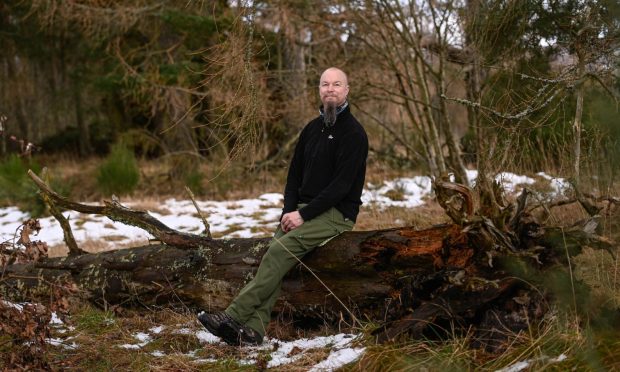
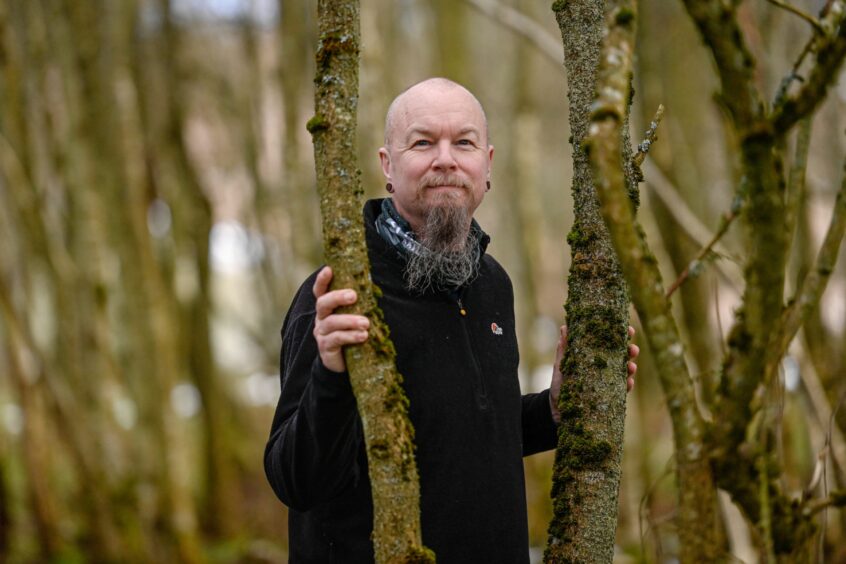
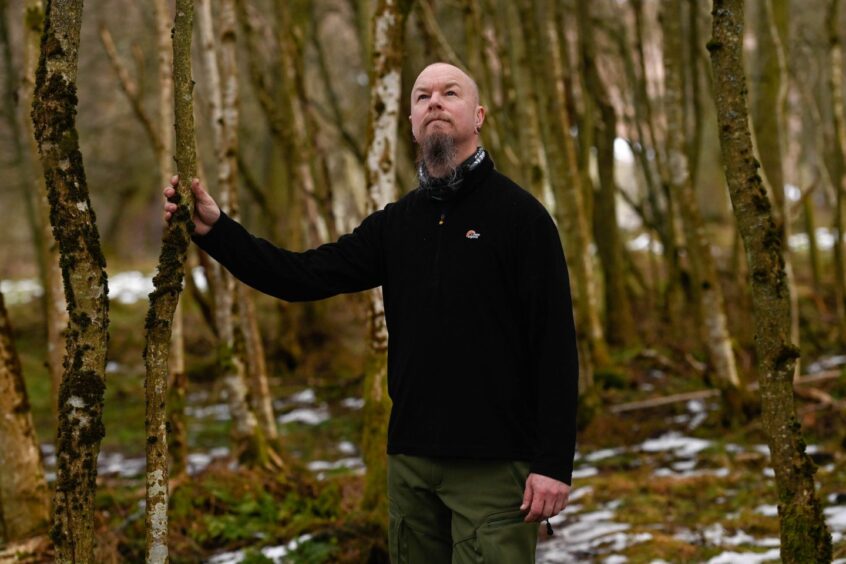
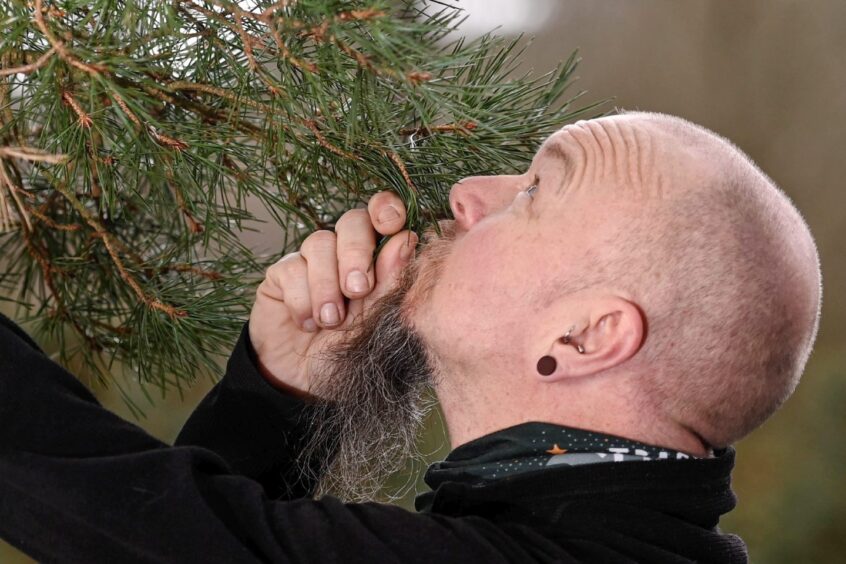
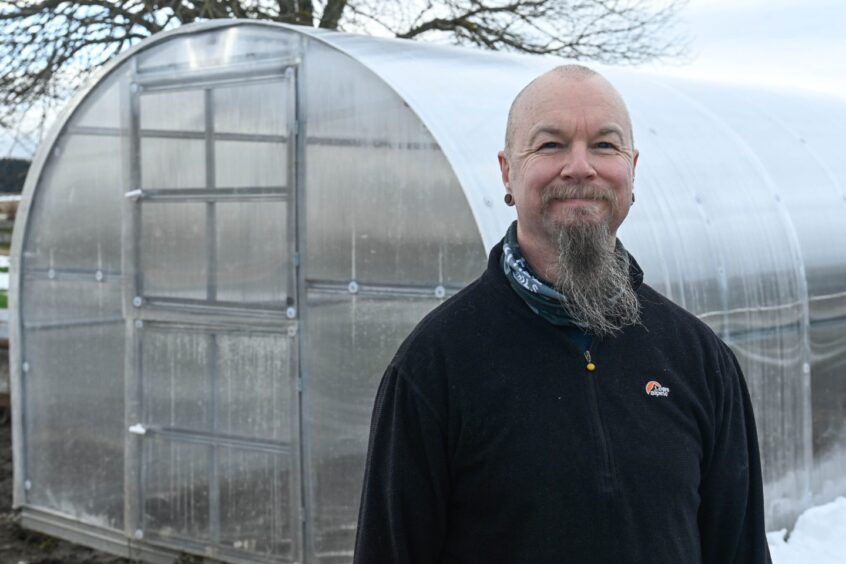
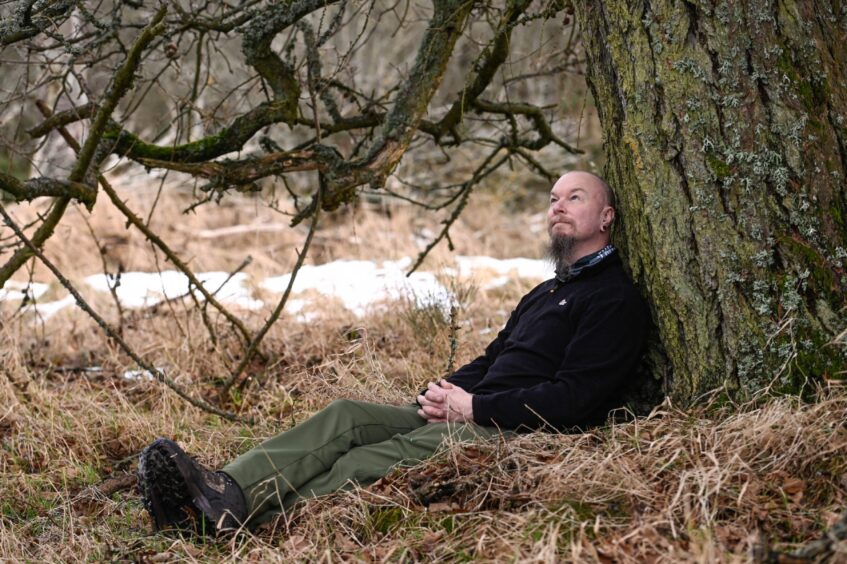
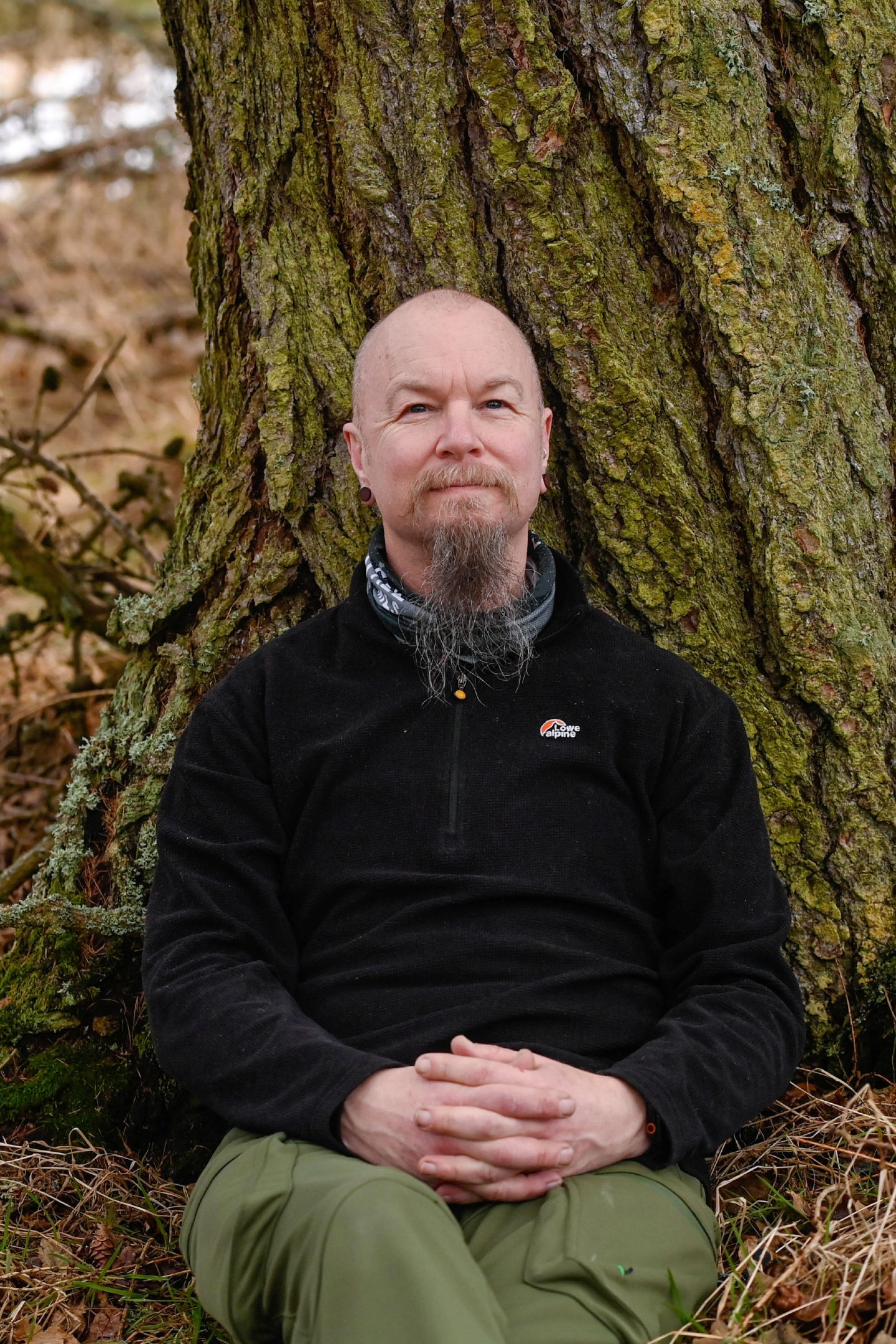
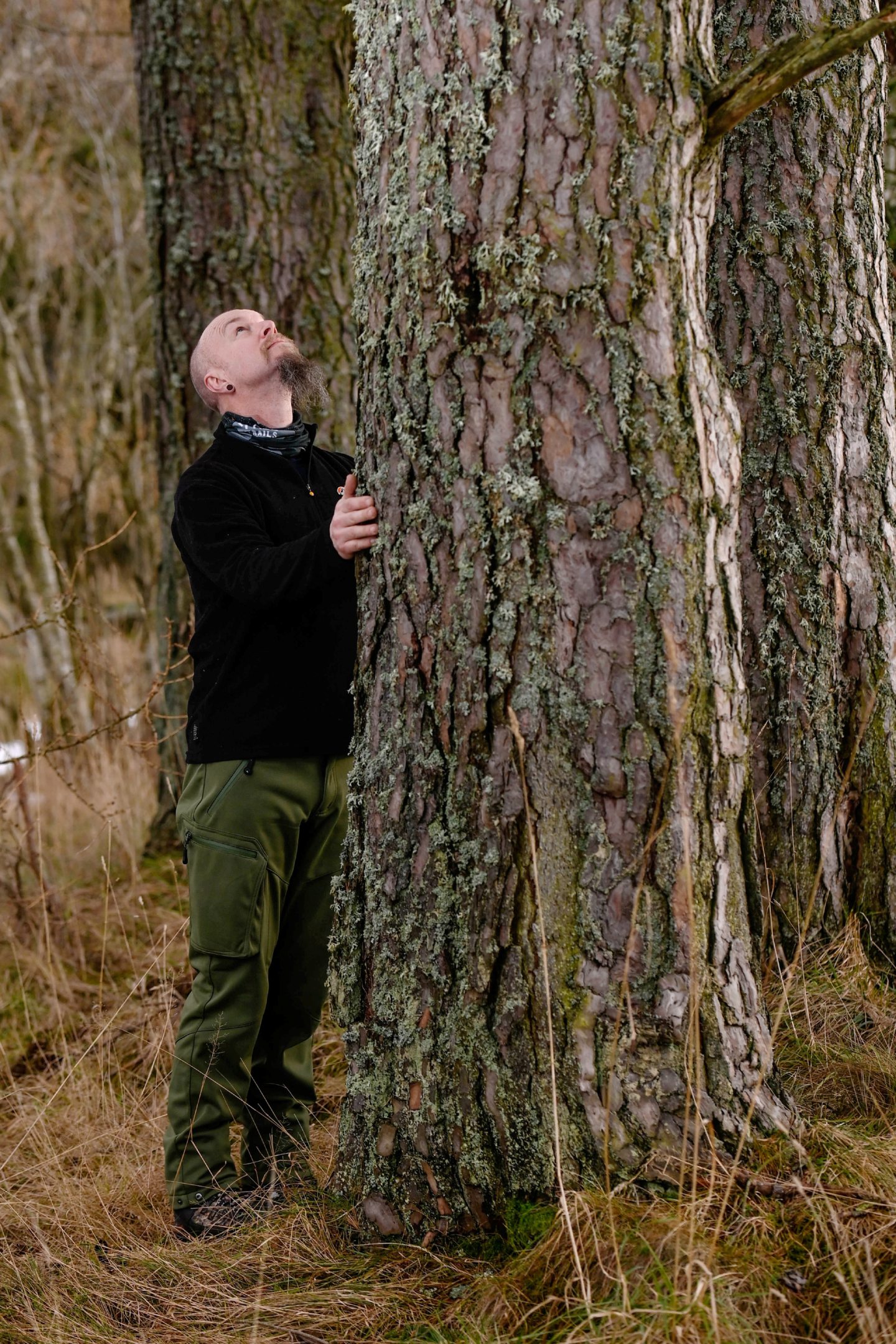
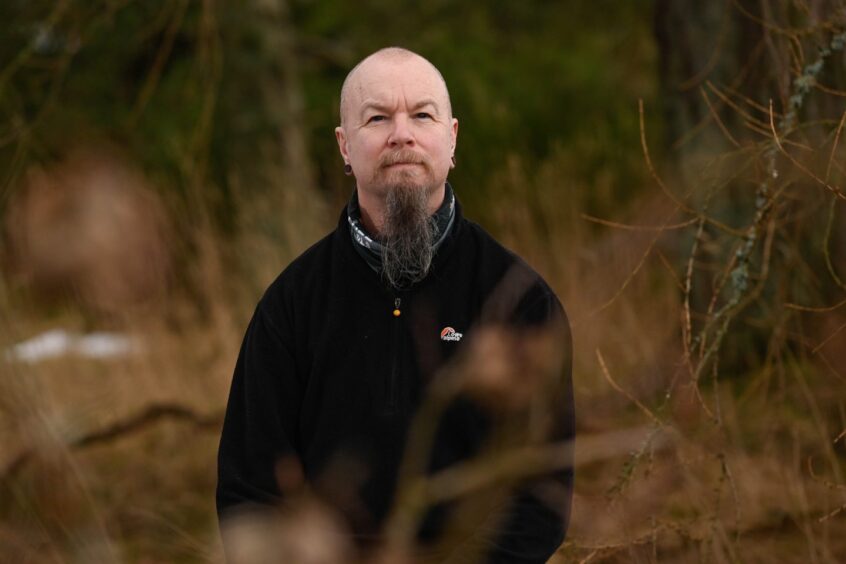
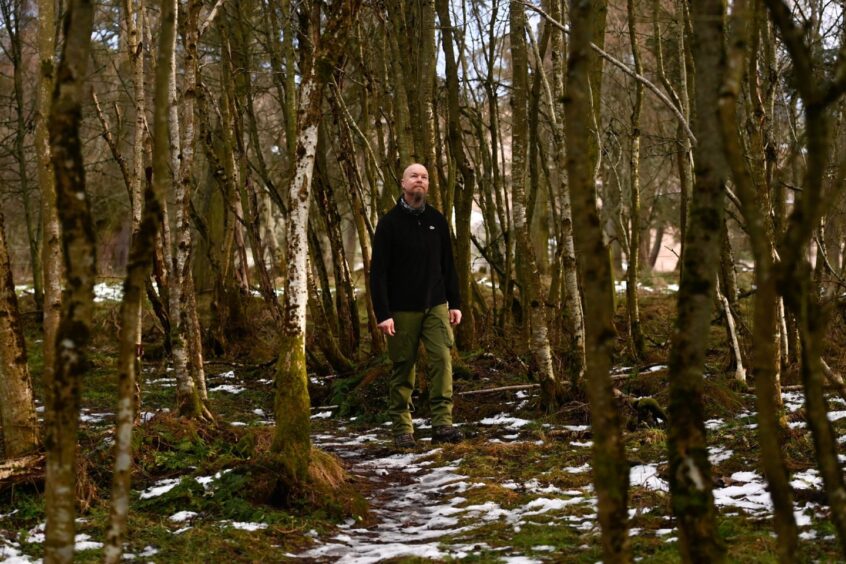
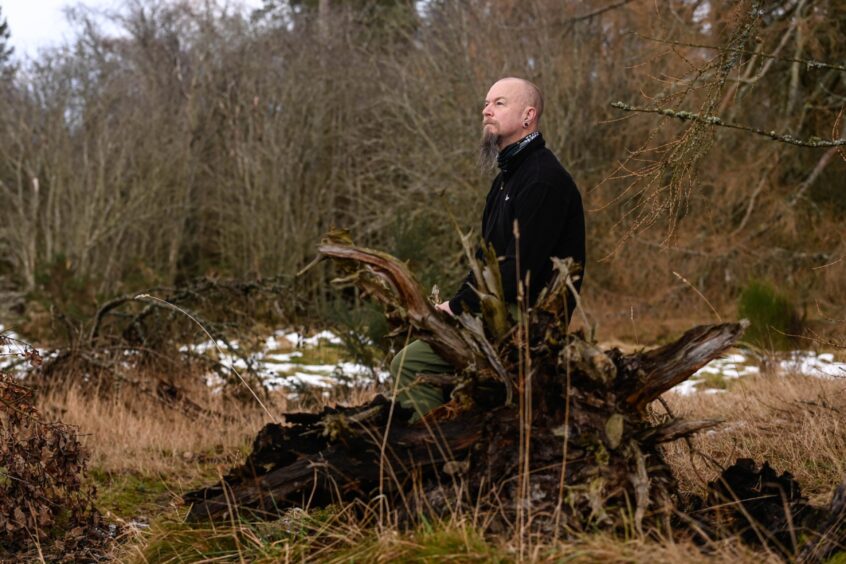
Conversation